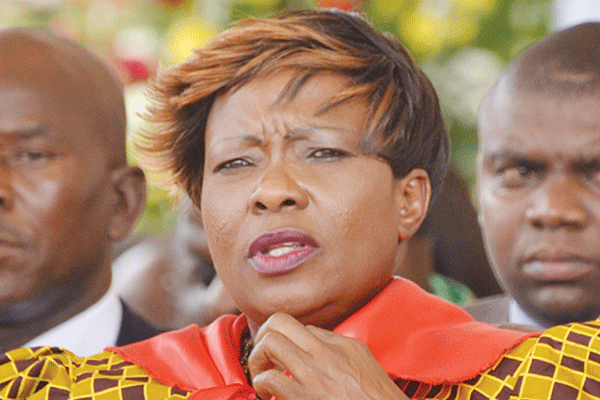
FIRST Lady Auxillia Mnangagwa has called for a blanket amnesty on registration of births for all children in the country.
BY VENERANDA LANGA
The issue was raised in the National Assembly on Thursday through a motion moved on her behalf by Zanu PF proportional representation MP, Melody Dziva and seconded by MDC legislator, Jasmine Toffa (PR).
The pair had to move the motion on behalf of Mnangagwa after she resigned as Chirumanzu-Zibagwe MP last week.
“The First Lady has recommended that the Justice ministry reviews child adoption legislation to ensure that the rights to identity documents (IDs) and livelihoods are upheld, and to change the stringent adoption laws because they are man-made,” Dziva said on behalf of Mnangagwa.
“There should be a blanket amnesty for registration of births of all children because if they are not registered, they will be unable to go to school, and if we do not intervene, these children will end up becoming menaces in society.”
Dziva said the Public Service ministry and juvenile courts should remove all bureaucracy in the adoption of children, but the procedure was cumbersome.
She said some of the issues that affected acquisition of birth certificates by children were the long queues at the Registrar-General’s offices, resulting in the Harare offices only serving 150 clients per day, while the other nine provinces can only serve 200 requests per day.
- Chamisa under fire over US$120K donation
- Mavhunga puts DeMbare into Chibuku quarterfinals
- Pension funds bet on Cabora Bassa oilfields
- Councils defy govt fire tender directive
Keep Reading
“Most of the children affected are children with mothers, who neglected to get birth certificates for them, children, whose mothers themselves do not have birth certificates, those born of illegal citizens, and children that reside in squatter camps,” Dziva said.
She said, generally, Zimbabweans feared adopting children on superstitious cultural and religious grounds.
“The process of adoption is long, from six months to six years, and the assessment is stringent, as they look at issues of whether the prospective parents are married, residents or non-residents, and even psychological assessments. Some hospitals also have a habit of withholding birth records of children because of outstanding fees,” Dziva said.
She said birth fees were pegged at $5 to $10, which was beyond the reach of most Zimbabweans, while registering of births for children born outside the country could cost as much as $50.
Toffa said many residents of Matabeleland have been denied their rights to birth certificates and had appealed to her to take the matter to Mnangagwa so that they could also have IDs.
She narrated stories of people that have now grown up without access to birth certificates and IDs.
Toffa said one man in Bulawayo ended up saying it would be better if he were issued at least with a death certificate because he was as good as dead without any identification particulars.











